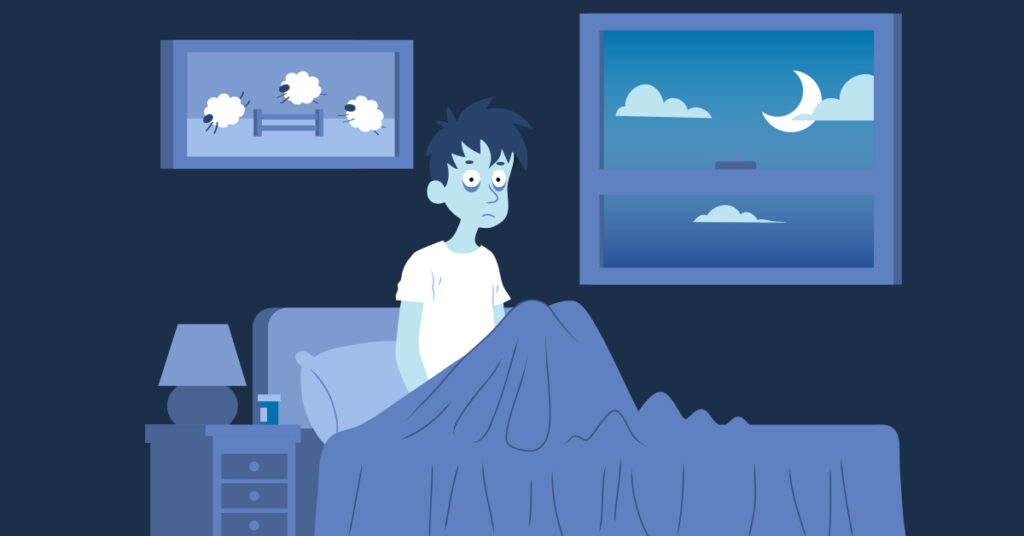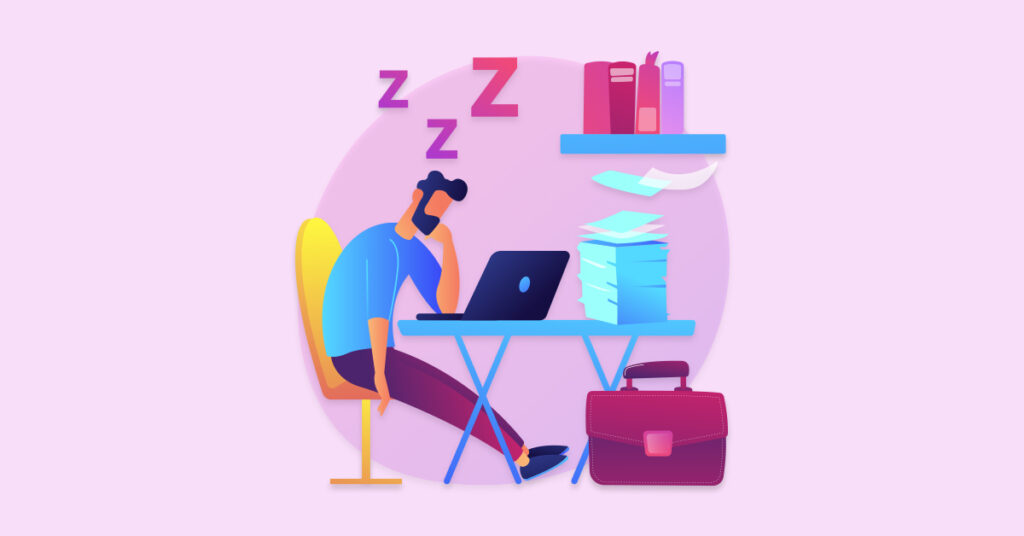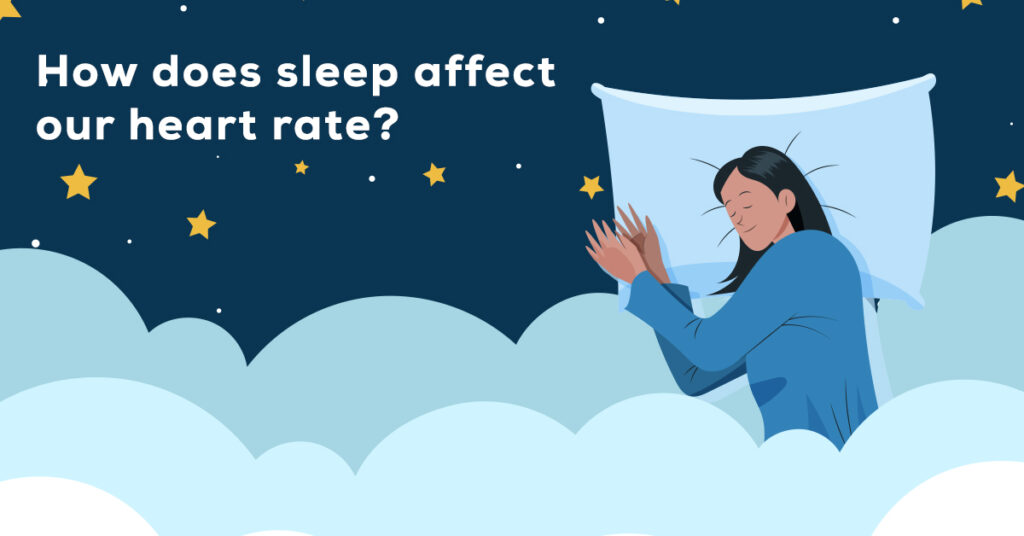We have been told from our childhood that sleep is very important for our health but now we get to know that it affects our heart health too. One thing is for sure that the importance of our heart’s health can’t be neglected in any circumstance. At the core, it’s our heart that helps to provide oxygen to each body part but it is disheartening that people are not taking their heart rate into consideration as seriously as they should. It’s quite important to take care of our heart rate.
Technology has impacted our day-to-day life and made things easier for us but technology is a double-edged sword. It is the impact of the technology itself that is affecting our heart’s health vastly.
On the contrary health care services should be given priority in this regard which we all fail to do so.
Although there are other factors to the degrading heart health too such as smoking, poor diet, decrease in exercise. One main cause of the worsening situation is our lack of sleep. There is growing recognition of the heart problems incited by sleep deprivation.
There are numerous studies that try to figure out why sleep is important for our health and what direct impact it has on the heart’s health. In Layman terms, sleep provides time for our body to recharge ourselves, our organs and our mental health too. It plays a very key role in nearly all aspects of physical health and is one of the easiest and most natural ways to enhance degrading physical health.
At the very root of our Indian culture, yoga is practised by only a few which has proven to be one of the most influential tools in health care services. Yoga services are inexpensive and should be taken a little more seriously.

For the heart especially, insufficient and fragmented sleep results in problems in blood pressure and the increased risk of numerous heart-related diseases such as heart attacks, diabetes, and stroke. One department where the people who often complain about heart problems is their sleep.
They often don’t have a sleep pattern that can provide them with sufficient rest that they require daily. This results in a degradation in the heart’s health and opens the door to other numerous heart diseases.
If we are to believe the studies then they indicate that poor sleep is directly linked to increased risk of heart diseases. It is believed that changes in sleep pattern result in an increased risk of cardiac health problems.
A 2016 American study concluded that both too little and too much sleep as well as sleep disorders namely insomnia and sleep apnea are associated with heart health after adjusting other factors such as weight, smoking, age and ethnicity.
We often use technology such as smartwatches and fitness bands to track our heart rate. We can do a lot more than just knowing when we need to slow down on things but one thing is for sure that the fluctuations will be there throughout the day but those are determined by how well you slept last night.
If you want to know the normal heart rate then it’s called resting heart rate which is the number of heartbeats per minute when you are sitting around without much physical activity and it ranges between 60 to 100 beats per minute.
If you are wondering how much change in heart rate is normal then we will discuss that in detail and the factors that affect them too.
How Heart Rate charge while you Sleep?
We all wonder what happens to our heartbeat when we sleep. While in the day the rate is normally increased due to the increased physical activity. Although at night the simulation of our nervous system is reduced and most of the body processes slow down.
Our heart rate gradually reduces after about five minutes we drift off to sleep. The time when we just go into sleep which is known as light sleep our resting rate slows down. Our body temperature drops and muscles go into the relax mode. We just spend half of our night in light sleep.
However, when our sleep gets deep and we enter into the deep sleep phase our heart rate slows down to about 20-30% below our resting heart rate.
This is evident that the heart rate decreases while we sleep although there are some exceptions such as when we enter into REM sleep which is known as Dreaming sleep. Our heart rate can fluctuate a lot in this phase.

Our heart rate in dreaming sleep resonates with the level of activity which is occurring in our brain and this is something our of our control. Studies show that if you are dreaming about running then your heart rate will increase to that of when you would be running when awake.
One important thing to note from these facts is that our heart rate slows down naturally while we sleep and hence it implies that sleeping is important to the heart’s health. But if we are not getting enough sleep then there is the obvious problem that our heart rate will not drop down from the resting rate and this will cause you to inhibit heart diseases in the long run.
Hence, the obvious question arises does sleeping less affect our heart health?
Does Sleep Deprivation Affect Heart Rate?
It is known that sleep is essential for the body to recuperate. During the non-rapid eye movement sleep stages such as deep sleep our heart rate slows down, blood pressure drops and breathing stabilizes.
These are the exact changes that are required to reduce the stress on our heart which allows this vital organ to recover from the strain that happens during the waking hours.
When we don’t get enough sleep or to be more precise a deep stage sleep then the benefit your heart gets from the sleep is snatched away from it. The same scenario is repeated when your sleep is frequently interrupted due to unforeseen circumstances.

Chronic sleep deprivation is linked to all sorts of heart problems. Sleep deprivation has been associated with high blood pressure which is a high-risk factor for heart disease. It has been seen that sleep deprivation has the same effect on the heart that alcohol has on it.
Technology induced sleep deprivation is worse than we normally consider it. The mere fact that this is not a natural problem that someone is dealing with but is caused by the overuse of technology. The blue light emitted by most of the electronic screens around us hinders our sleep pattern and hence using any such device for a longer duration at night will start causing you such problems.
Sleep and Blood Pressure
Till now we know that sleep and blood pressure are connected. During a healthy normal sleep blood pressure drops by around 10-20%. This is a very crucial task of the body and helps in cardiovascular health.
Often poor sleep whether it is a result of disturbed sleeping pattern, frequent disruptions or the excessive use of technology results in this vital function not happening. The result of all this is that the blood pressure doesn’t go down at night.
The result is that the blood pressure is elevated at nighttime which results in hypertension which is high blood pressure. The blood pressure increase in the night is more closely related to the increased heart problems that happen in the day.
This eventually leads to kidney problems and reduced blood flow to the brain.

Studies show that the raised blood pressure at night doesn’t affect people equally. The sleep deprivation-induced blood pressure increase may cause some people to experience pain in the chest at night while others experience it in the day while any physically demanding activity.
Hypertension in itself is a fatal condition for the heart and when induced from poor chronic sleep makes the situation even worse. People who work long hours in high-stress jobs are most likely to be affected by this problem.
Sleep and Heart Failures
Heart failure is often misused in heart diseases. Heart failure is when your heart doesn’t pump enough blood to supply to the whole body and the necessary oxygen needed is not provided to the organs.
Heart failure is as fatal as it sounds. This only happens a few times in anyone’s lives if you survive one actually. A study shows that people who had less than seven hours of sound sleep at night for a longer duration of 6 months have an elevated risk of heart failure.
Heart failure is a common problem in people with unhealthy sleeping habits and people with sleep disorders such as insomnia. You may have heard that sleep disorder diagnosed people have a short life span due to their heart being weak over time from lack of rest.
Sleep and Heart Attacks
Heart attacks are mini heart failures and worries people as much because it shows that they have the risk of heart failure in upcoming years. Heart failure is when the flow of blood is blocked to the heart for a short period of time.
Heart attacks are not just an indicator that you may be dealing with some serious heart problems but the damage that is caused when the heart does not get enough oxygen can be fatal. This is lead to serious permanent damage.
The risk of heart attacks heightens with lack of sleep. Studies concluded that people getting less than 6 hours of sleep had a 20% higher chance of getting a heart attack. When we are in deep sleep our heart rate’s slowing can be fatal to people with a high risk of heart attacks. The sleep can itself become fatal for them. On the other hand, people with sleep interruptions have a very uncertain relationship with heart attacks as the heart rate is spiked after just awakening from a sound sleep this can result in frequent heart attacks and permanent damage to the heart artilleries.

Frequent disruptions result in increased cardiac stress and eventually leads to a heart attack. Getting a sound sleep with few medications for these people is the best advice to take things back to normal.
A weak heart is not what anyone dreams of but can be the reality of many people if sleep is to be taken lightly. The importance of sleep can be felt from the above heart problems that can knock on your door if you don’t take care of your sleep.
Conclusion
Concluding, we all have lost our ability to consciously choose when to sleep after the introduction of technology. Now that we are so deeply rooted in our technology and mainly smartphones, we have to admit that they disrupt our sleep cycle but we are responsible for all this.
In the end, it is our responsibility to use our devices accordingly. If they are disrupting our sleep then we need to take some action against them. It is advised to put your phone down when you decide to sleep, this will help you to achieve a more natural sleep than using your phone provides you with.
Another way to handle this problem is to use a very simple trick. Get yourself a blue light filter app on all your devices that will filter out the blue light which is proven to hinder your sleeping pattern. All electronics emit this blue light and it is fatal for our sleep and can leave us stressed both physically and mentally.
Using these simple tricks can save you from a potential heart attack in the future. One very subtle way to battle sleep deprivation is to get yoga services for yourself. It may be even more beneficial for you than health care services if taken seriously.
Read This Blog: How are mHealth Apps are Changing the Healthcare Industry?

